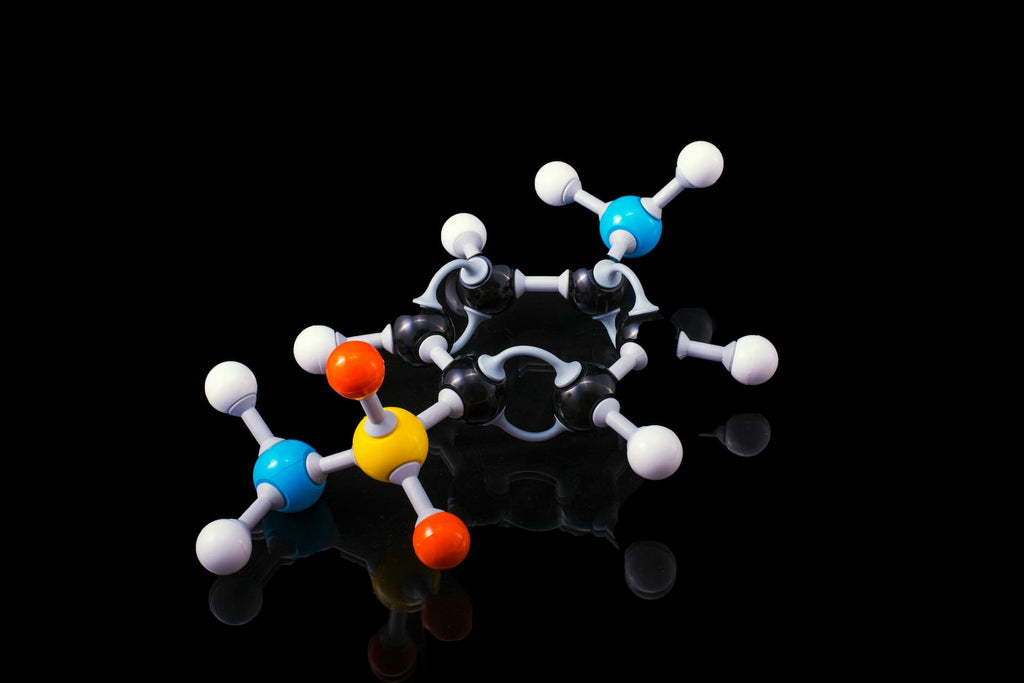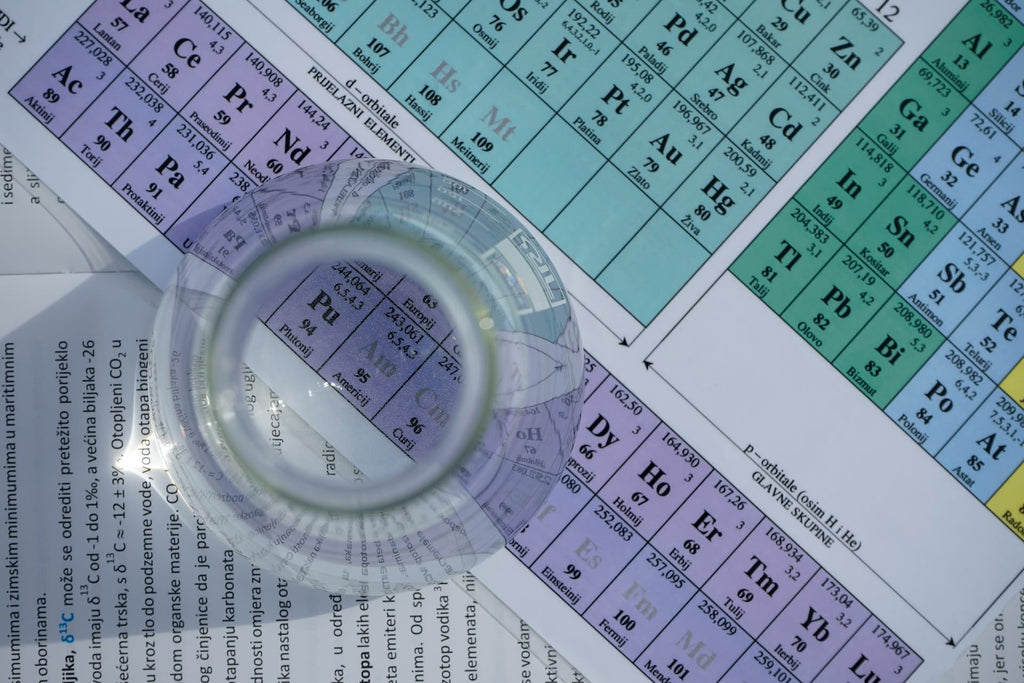Choosing the right Advanced Placement (AP) courses can be a pivotal decision in a high school student's academic journey. Among these, AP Chemistry stands out as a subject that not only challenges students but also opens doors to advanced scientific understanding.
This course, renowned for its rigor, often raises a crucial question: Is it possible, or even advisable, to take AP Chemistry without prior experience in standard chemistry? This blog post delves into this query, exploring the prerequisites of AP Chemistry and providing guidance for students pondering over this significant academic choice.
Whether you're a science enthusiast or a student planning your academic path, understanding the relationship between standard chemistry and its AP counterpart is key in making an informed decision.
Can You Take AP Chemistry Without Taking Chemistry?
Is Chemistry a Prerequisite for AP Chemistry?
The straightforward answer is, it depends. While the College Board, which administers AP courses, does not mandate taking standard chemistry before enrolling in AP Chemistry, many high schools do.
This is because AP Chemistry builds upon the foundational knowledge typically covered in a first-year chemistry course. It's a rigorous class, delving into complex concepts and demanding a solid understanding of basics like atomic structure, chemical reactions, and stoichiometry.
Without this foundational knowledge, students might find themselves at a significant disadvantage.
Some schools might allow motivated students with strong backgrounds in other sciences or exceptional aptitude to enroll in AP Chemistry without prior chemistry experience. However, this is more an exception than the norm.
It's crucial for students to consult with their academic advisors or science teachers to understand their school's specific prerequisites and policies.
Should I Take AP Chem If I Like Chemistry?
A passion for chemistry is a fantastic start, but it's not the sole factor to consider when deciding whether to take AP Chemistry. This course goes beyond general interest and requires a commitment to understanding complex chemical concepts and problem-solving.
If you find yourself fascinated by the mysteries of matter and the intricacies of how substances interact, AP Chemistry can be incredibly rewarding. It's not just about liking chemistry; it's about being ready to embrace the challenge it presents.
AP Chemistry is ideal for students who are not only interested in chemistry but are also prepared to invest significant time and effort in mastering its advanced topics. If your enjoyment of chemistry is coupled with a strong work ethic and a desire for an in-depth exploration of the subject, then AP Chemistry could be a great fit for you.

Prerequisites for AP Chemistry
When considering AP Chemistry, understanding the prerequisites is crucial for success in this challenging course. The prerequisites generally fall into three main categories: previous coursework, skill set, and personal attributes.
- Previous Coursework: Although the College Board does not explicitly require standard chemistry before AP Chemistry, most high schools recommend or require it. A solid foundation in basic chemistry concepts is essential, as AP Chemistry builds directly on this knowledge. Additionally, a strong background in Algebra II is often recommended, as mathematical skills are integral to understanding and solving chemistry problems.
- Skill Set: AP Chemistry is not just about memorizing formulas and chemical reactions; it demands analytical thinking, problem-solving skills, and the ability to apply concepts in various contexts. Students should be comfortable with scientific experimentation and lab work, as practical lab skills are a significant component of the course.
- Personal Attributes: Self-motivation, discipline, and a willingness to dedicate significant time to study are key. AP Chemistry requires consistent effort and the ability to work through challenging concepts independently. A genuine interest in science and an eagerness to explore chemistry at a deeper level will also help maintain engagement throughout the course.
What Does AP Chemistry Cover?
AP Chemistry is a comprehensive course that delves deeply into the world of chemical sciences. It's designed to be the equivalent of a first-year college chemistry course, offering high school students an opportunity to earn college credit. The curriculum is extensive, covering a range of topics that provide a thorough understanding of chemistry principles. Here are some key areas that AP Chemistry typically covers:
- Structure of Matter: This includes atomic theory, atomic structure, chemical bonding, and molecular geometry. Students explore the fundamental building blocks of matter, understanding how atoms interact and form compounds.
- States of Matter: This section deals with the properties and behaviors of gases, liquids, solids, and solutions. It includes kinetic molecular theory, phase changes, and the concepts of intermolecular forces.
- Chemical Reactions: Students learn about different types of chemical reactions, stoichiometry, equilibrium, kinetics, and thermodynamics. This involves understanding how and why substances react to form new products, and the rates at which these reactions occur.
- Descriptive Chemistry: This part of the course focuses on chemical reactivity and the qualitative analysis of elements and compounds. It's an opportunity to apply theoretical knowledge to real-world chemical problems.
- Laboratory Skills: A significant portion of AP Chemistry involves hands-on laboratory work. Students develop practical skills in experimental design, data analysis, and laboratory techniques, which are crucial for scientific inquiry.
- Quantitative Analysis: This involves the mathematical side of chemistry, including calculations related to chemical formulas, equations, and concentration.
AP Chemistry is not just about learning facts; it emphasizes understanding chemical concepts and applying them to various contexts. It's rigorous but rewarding, offering students a deep dive into the fascinating world of chemistry.
How to Choose the Right AP Course for You
Deciding which AP courses to take is a significant step in your academic journey. The choice should align with your interests, academic strengths, and future goals. Here's how you can navigate this decision, with a focus on AP Chemistry:
Is AP Chemistry Considered a Hard AP Course?
AP Chemistry is often considered one of the more challenging AP courses. It's not just the volume of content that makes it tough, but also the complexity of concepts and the level of understanding required.
Students must be adept at applying principles to new situations, handling laboratory work, and performing intricate calculations. The course's rigorous nature demands a good deal of dedication and consistent study habits.
However, the difficulty of AP Chemistry can be a rewarding challenge for the right student. If you have a strong foundation in science and math, and you enjoy problem-solving and critical thinking, you may find the course engaging and stimulating.
Should I Take AP Chem If I Like Chemistry?
Your interest in chemistry is a great starting point, but it's important to assess whether AP Chemistry aligns with your academic strengths and future aspirations. If you are considering a career in science, engineering, medicine, or a related field, AP Chemistry can provide a valuable foundation. It not only deepens your understanding of chemical principles but also develops critical thinking and analytical skills that are beneficial in many fields.
Before making a decision, reflect on your academic workload, your ability to manage time effectively, and your willingness to commit to a challenging course. Consult with your teachers or counselors to gauge if AP Chemistry is a good fit for you based on your past performance in science and math courses.

Conclusion: Should You Take AP Chem Without Taking Regular Chemistry?
In conclusion, the decision to take AP Chemistry without prior experience in regular chemistry is one that requires careful consideration. While it's not impossible, it presents a unique set of challenges.
The absence of a foundational chemistry background can make navigating the complex topics of AP Chemistry more difficult. However, for students with a strong aptitude in science and math, exceptional problem-solving skills, and a high level of self-motivation, it might be a feasible path.
Remember, AP Chemistry is demanding and typically designed for students who have already demonstrated a solid understanding of basic chemistry concepts. If you're contemplating skipping regular chemistry, evaluate your readiness honestly.
Are you comfortable with self-study to catch up on fundamental chemistry concepts? Can you dedicate extra time to grasp the advanced material?
For most students, taking standard chemistry first is advisable as it lays the groundwork for the more challenging AP course. It’s not just about getting through the AP exam; it's about truly understanding and enjoying the subject.
If your goal is to build a strong foundation in chemistry, especially if you're considering a STEM-related career, starting with a regular chemistry course is a wise choice.
Ultimately, the decision should align with your academic strengths, learning style, and future aspirations. Consult with your teachers, and consider your overall academic plan. A thoughtful decision now can set the stage for success in AP Chemistry and beyond.
Looking for more information about AP Chemistry?
Download our comprehensive class guide by clicking the thumbnail below, or visit our AP Chemistry page to learn more about tutoring support.


